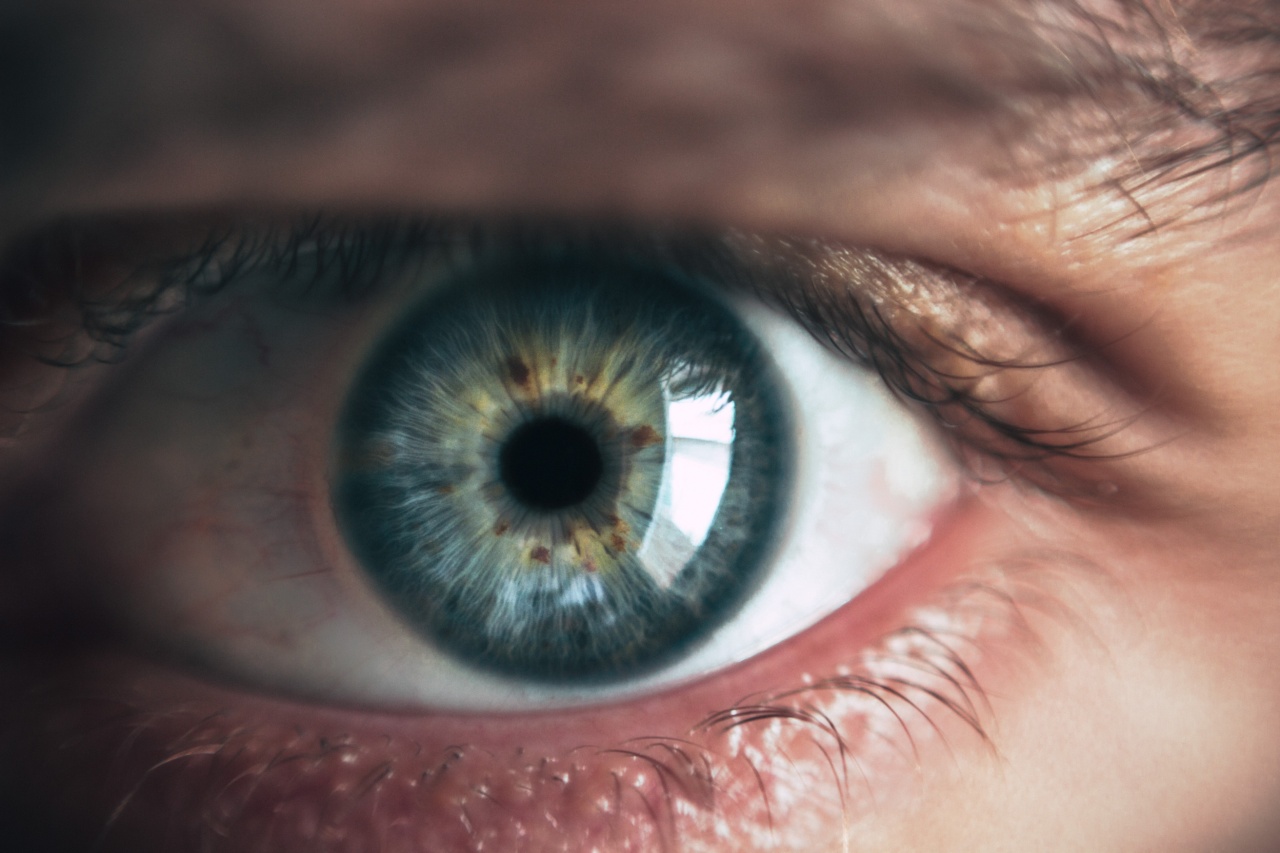Blurred vision is a common eye problem that can affect individuals of any age. It occurs when a person’s vision becomes unclear and out of focus, resulting in difficulty seeing clearly.
Blurred vision can be caused by various factors, including refractive errors, eye diseases, system disorders, medications, and lifestyle choices. In this article, we will discuss the most common causes of blurred vision and how they can be treated.
Refractive Errors
Refractive errors are the most common cause of blurred vision. These errors occur when the shape of the eye does not bend the light in the correct way, resulting in a blurred image. The most common refractive errors include:.
Myopia (Nearsightedness)
Myopia occurs when the eyeball is too long or the cornea is too curved, resulting in the light focusing in front of the retina instead of on it. This makes distant objects appear blurry while nearby objects remain clear.
Hyperopia (Farsightedness)
Hyperopia occurs when the eyeball is too short or the cornea is too flat, causing the light to focus behind the retina instead of on it. This makes near objects appear blurry while distant objects remain clear.
Astigmatism
Astigmatism occurs when the cornea or lens of the eye is irregularly shaped, causing a blurred image at all distances. This can also cause distortion in the images a person sees.
Refractive errors can be corrected with glasses, contact lenses, or refractive surgery such as LASIK. An eye exam can determine if you have a refractive error.
Eye Diseases
Various eye diseases can cause blurred vision. Some of the most common include:.
Cataracts
Cataracts occur when the clear lens of the eye becomes cloudy, leading to blurry vision. This can also cause a loss of contrast and sharpness in vision.
Glaucoma
Glaucoma is a group of eye conditions that damage the optic nerve, which transmits information from the eye to the brain, leading to blurred vision and even blindness.
This condition can also cause a halo effect around lights and vision loss in the side or peripheral vision.
Diabetic Retinopathy
Diabetic retinopathy is a complication of diabetes that affects the blood vessels in the retina. This can cause vision changes such as blurred vision, dark spots, and floaters.
Macular Degeneration
Macular degeneration is an age-related eye disease that affects the macula, a part of the retina that is responsible for sharp, central vision. This can cause blurred vision, especially in the center of the visual field, and a loss of color vision.
The treatment of eye diseases varies depending on the condition and severity. Some options may include medication, surgery, or lifestyle modifications.
System Disorders
Various system disorders can affect the eyes and cause blurry vision. Some common causes include:.
High Blood Pressure
High blood pressure can cause damage to the blood vessels in the retina, leading to blurred vision and even blindness.
Migraine Headaches
Migraine headaches can cause a visual aura, which can result in blurred vision, flashing lights, and other visual disturbances.
Multiple Sclerosis
Multiple sclerosis is a neurological condition that can cause damage to the optic nerve, leading to blurred vision and other visual changes.
Autoimmune Diseases
Various autoimmune diseases such as lupus, rheumatoid arthritis, and Sjogren’s syndrome can cause inflammation in the eyes, leading to blurred vision and other vision changes.
The treatment of system disorders that cause blurred vision varies depending on the condition and severity. Some options may include medication, surgery, or lifestyle modifications.
Medications
Various medications can cause blurred vision as a side effect. Some common ones include:.
Antihistamines
Antihistamines, such as Benadryl, can cause blurred vision as well as dryness in the eyes and mouth.
Steroids
Steroids, such as prednisone, can cause cataracts and glaucoma, leading to blurred vision.
Antidepressants
Antidepressants, such as Prozac and Paxil, can cause blurry vision as well as dry eyes and difficulty focusing.
Anticholinergics
Anticholinergics, such as Atropine, can cause blurred vision as well as dry mouth, constipation, and urinary retention.
If you are experiencing blurred vision while on medication, talk to your doctor to see if there are alternatives that may cause fewer side effects.
Lifestyle Choices
Various lifestyle choices can affect eye health and lead to blurry vision. Some common ones include:.
Smoking
Smoking can increase the risk of eye diseases such as cataracts, macular degeneration, and optic nerve damage, leading to blurry vision.
Poor Nutrition
A diet lacking in nutrients such as vitamin A, vitamin C, and omega-3 fatty acids can affect eye health and lead to blurry vision.
Eye Strain
Activities that require prolonged use of the eyes, such as reading, using a computer, or driving, can cause eye strain and blurred vision.
Not Getting Enough Sleep
Not getting enough sleep can cause eye fatigue and lead to blurry vision.
Lifestyle modifications such as quitting smoking, eating a healthy diet, taking breaks during eye-straining activities, and getting enough rest can help improve eye health and reduce the risk of blurry vision.





























